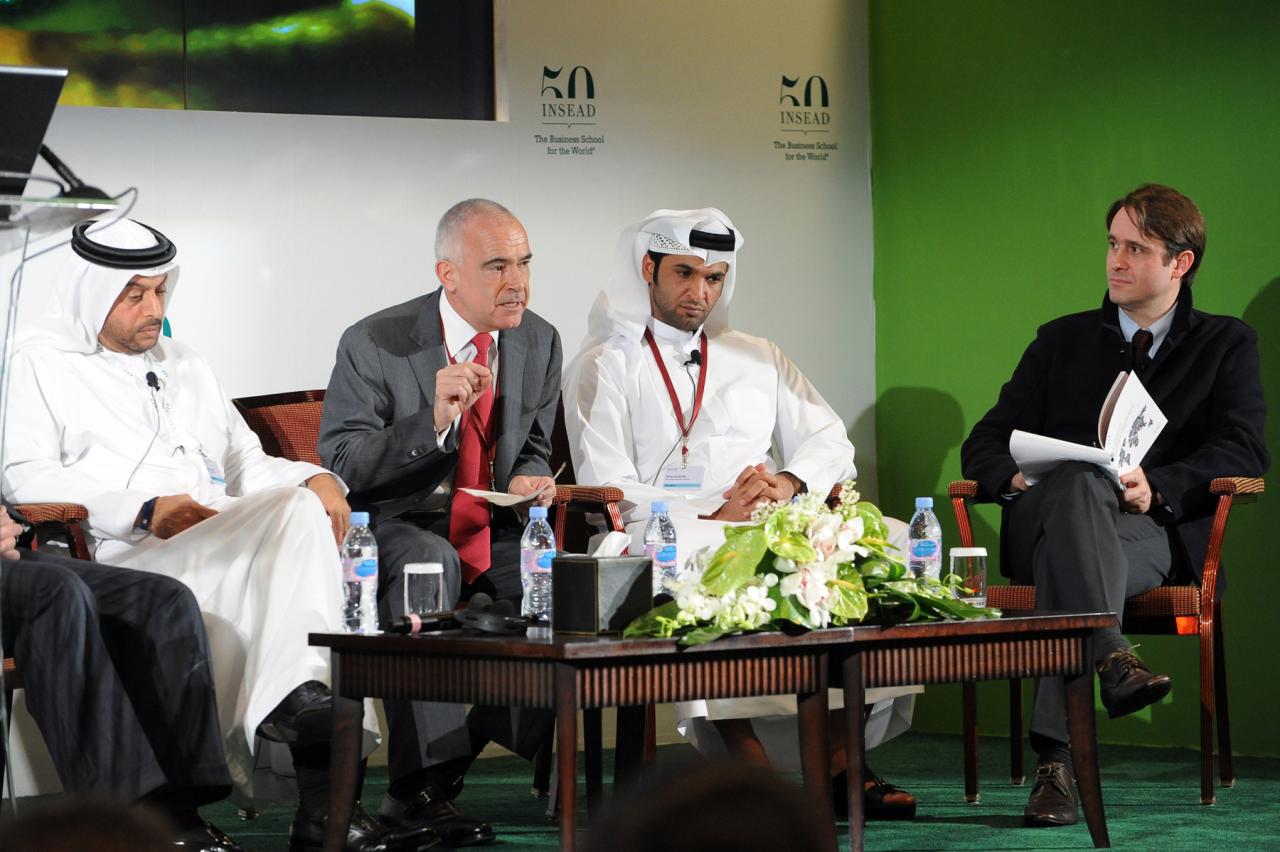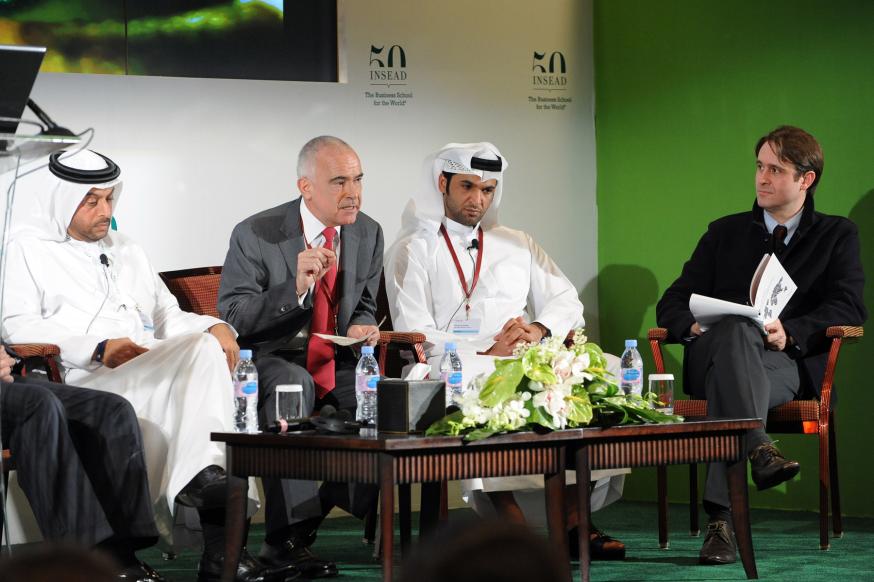

“We did some forecasting with the UAE, maybe a year and a half ago, before the real financial crisis hit. And the forecast said ... the UAE needs around about a quarter of a million skilled, qualified people a year to help the economy keep growing,” says David Arkless, President of Corporate and Government Affairs, Manpower Inc, the largest employer in the UAE outside of government.
Take the oil and gas sector for example, which too is experiencing a brain drain. According to Sultan Al-Hajji, Deputy General Manager of oil and gas company Total Abu Al Bukhoosh, this sector will lose 40 per cent of its skilled engineers in the next five years because workers are leaving faster than they are coming in.
That shortfall in local talent, says Sherif El Diwany, the Director, Head of Middle East and Arab Business Council, World Economic Forum, should not be viewed as a threat but rather as an opportunity.
“I think it's important that any country, anywhere in the world, if it wants to succeed, then it goes for the best talent, it buys the best service anywhere in the world. There's absolutely nothing to be ashamed of or worried about in that sense. And therefore having an expatriate labour force ... is not a problem.”
Countries, he adds, should instead concern themselves more with being able to attract the best talent in the world regardless of nationality, by providing them with a high standard of living for their families -- because a happy workforce is also a productive one.
While Abu Dhabi’s leaders have also acknowledged that foreign talent has indeed helped spur its economic growth, they have come to appreciate that the issue lies not so much in retention of that talent, but in the transfer of knowledge to the locals when the expatriates are long gone.
“This country has been, from the 70s, benefiting from foreign expertise, and is still doing so for realising all of its vision. Even in the modernisation process that we went through in the last four years, the focus has been institutional because we had that leverage of that foreign expertise and we’re still keen on maintaining that,” says Ali Al Ketbi, Assistant Secretary General, Public Administration, General Secretariat of the Abu Dhabi Executive Council.
“Now what we lack is that mechanism which transferred that knowledge and then institutionalised it, so it is benefitted on individual and organisation, and community at large.”
That transfer of institutional knowledge -- or the know-how to do it -- is where the panellists believe schools such as INSEAD have a pivotal role to play.
“This region, if it wants to grow economically, is stuck with the requirement for foreign immigrant labour,” says Arkless. “The question is how do you manage and framework that immigrant labour? How do you develop bilateral treaties and relationships with other countries, specifically the subcontinent and the Philippines and other places to get some circulatory work migration in place, where qualified workers come to the countries of the Gulf and the rest of the Arab world, contribute something and pass on their skills to local people?”
El Diwany thinks these questions can point to a solution. “I think you need to look at the knowledge capture of the institution -- how it captures knowledge in the public domain, how to capture knowledge, document it, transfer it, pass it on and how to continuously update it and share it accordingly. And this could be an area where institutions like INSEAD and others that are present here could focus and assist in helping public institutions deal with that challenge.
“The mere existence of INSEAD in Abu Dhabi is, in itself, a phenomenon” says Al-Hajji. “INSEAD is a catalyst for an exchange of ideas, exchange of culture, as a bridge of two cultures between the West and East. Let’s use this culture that it benefits all of us. Let us be a platform (in terms of a) think-tank to advance our country and the people who are associated with it.”
-
View Comments
-
Leave a Comment


No comments yet.